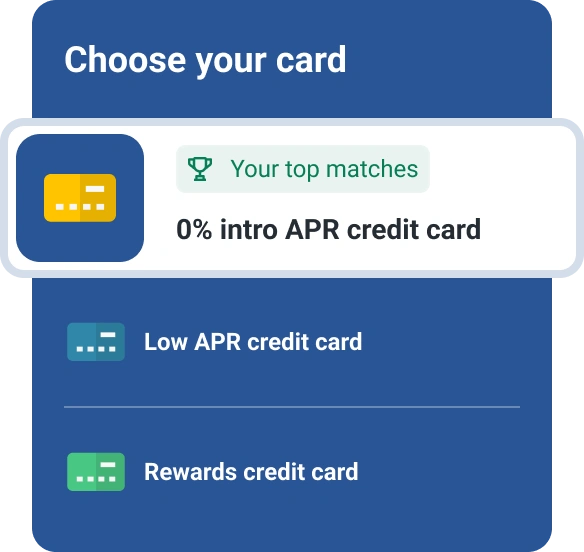Does Going Over My Credit Limit Affect My Credit Score?
Quick Answer
Exceeding a credit card’s borrowing limit can bring costly fees and hurt credit scores.

Exceeding a credit card's borrowing can hurt your credit scores and cost you in fees. When you exceed your card's borrowing limit, you push its credit utilization rate—the percentage of its borrowing limit represented by its outstanding balance—past 100%.
Credit utilization is an important credit score ingredient, and a utilization rate above 100% can have a negative effect on scores. Here's how it all works.
Does Going Over Your Credit Limit Affect Your Credit Score?
When credit utilization rate exceeds about 30%, the negative effect it can have on your score as calculated by FICO and VantageScore® becomes more pronounced. Generally speaking, the lower your credit utilization, the better. Individuals with the highest credit scores tend to maintain utilization rates below 10%.
Going over your card's borrowing limit clearly isn't going to help your credit scores, but the amount by which it causes your scores drop may depend on how close to the limit you were before the transaction that tipped you over:
- If your utilization was at or below 10% before you maxed out the card, your score will likely drop appreciably, since you'll have gone from a "safe" utilization rate to one considered excessive by lenders and credit scoring systems.
- On the other hand, if your utilization rate was already close to 100% before the transaction, your credit scores will already have suffered some effects of high utilization, and topping 100% may not have an exaggerated effect.
What Happens When You Go Over Your Credit Limit?
If you try to make a purchase that puts your credit card balance over the card's borrowing limit, here's what can happen:
- Payment is declined. Unless you've agreed to allow overdrafts (and related fees) on the account, the payment will be declined. In that event, federal law forbids you from being charged any fees related to the overage. But even if you've opted into overdraft allowance and fees for the card, the purchase still may be declined, depending on the card issuer's policies and the amount by which the transaction exceeds your spending limit. Here again, if that happens, you cannot be charged any overdraft fees.
- You're charged an overdraft fee. If you've authorized overdrafts and fees for the card and the transaction is approved, it should come as no surprise that you'll be charged a fee. You can be charged up to $25 the first time you exceed your credit limit and up to $35 if you are over your limit a second time within six months. However, an overdraft fee cannot be larger than the amount by which you exceeded your credit limit, so if you go over your limit by, say, $15, the card issuer can't charge you a fee greater than $15.
How to Avoid Going Over Your Credit Limit
The easiest way to prevent going over a credit card's borrowing limit is to refuse to approve overdrafts when you fill out your card application or respond to notifications about the overdraft option.
If you've already opted to allow overdrafts, you can change that by accessing your account options via your bank's website or smartphone app or by calling the customer service number that appears on your card. Doing so won't exempt you from fees connected with any overdrafts you've already made, however.
To retain the option of going over your borrowing limit in an emergency, but wish to avoid doing so in a non-emergency, consider setting up an alert for each card that lets you know when you're getting close to the card's borrowing limit.
You may want to keep a card with a relatively high limit (with overdrafts approved) "on standby" for emergency use. Because card issuers may close inactive cards, consider charging a small recurring expense—such as a streaming service bill or gym membership—to the card, and setting up autopay to cover it, so you don't have to think about it.
What to Do if You Go Over Your Credit Limit
To avoid negative consequences associated with going over your credit limit, take these steps:
- Make a payment as soon as possible. Don't wait for your next bill to arrive to bring the balance on the card below its borrowing limit. This will prevent you from incurring additional overdraft penalties.
- Ask for a higher limit. If your credit score is decent and you've been managing other accounts well, consider seeking a higher credit limit on the card. That will ease your immediate problem and prevent additional overdraft fees, but you'll likely still have a high balance on the card. As such, you should still take the following steps to minimize harm to your credit scores.
- Put the card aside and stop using it for new transactions. If you've assigned any recurring expenses to the card, pause them but see to it they continue to be covered.
- Focus on making payments to the maxed-out card. Ideally, you'll continue this effort until the balance on this card is below about 30% of the borrowing limit. Make sure to keep up with payments on other accounts and avoid elevated balances as you focus on this one.
- Consolidate your debt. If your credit scores are still in reasonably good shape, consider a debt consolidation loan or a balance transfer credit card. These can help rein in interest charges that inflate high balances and prolong the process of paying them down. If you do this, take care to avoid running up new balances on your cards.
- Get advice from a credit counselor. If you have multiple cards with balances at or near their spending limits, consider enlisting the advice of a certified nonprofit credit counseling agency to help you devise a plan for getting your debt under control and bolstering your credit.
The Bottom Line
Exceeding a credit card's borrowing limit brings costly fees and depresses credit scores. You can make sure it never happens by choosing not to allow card overdrafts. And since it hurts your credit scores if you even approach 100% utilization on a card, try to keep balances below about 30% of your borrowing limits. Scores often respond quickly as high card balances are paid down, and you can track this by monitoring your FICO® ScoreΘ for free for free through Experian.
Don’t apply blindly
Apply for credit cards confidently with personalized offers based on your credit profile. Get started with your FICO® Score for free.
See your offersAbout the author
Jim Akin is freelance writer based in Connecticut. With experience as both a journalist and a marketing professional, his most recent focus has been in the area of consumer finance and credit scoring.
Read more from Jim

